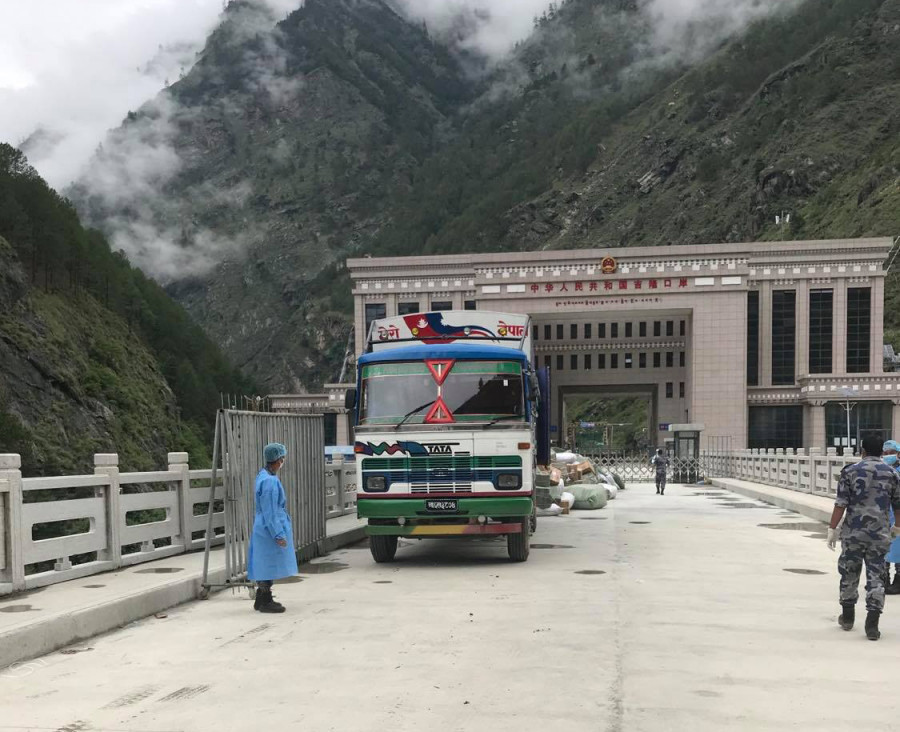Editorial
Trade in limbo
The Covid-19 saga cannot be continuously used as a pretext to shut the border points.
Another Covid-19 surge, another lockdown imposed in China, and the border points are sealed again obstructing the flow of goods to Nepal. More than 300 trucks bound for Nepal were stopped at the northern border with no deadline for re-opening it. This frequent disruption to trade by closing the border under the pretext of managing Covid-19 without any prior notice has caused considerable financial loss to Nepali traders who rely on the goods to further their business prospects. Stuck with the possibility of losing billions, it is a repeat of a situation that has become the norm these past two years.
The once bustling border point of Tatopani has long been shut since the fateful earthquake of 2015, citing damage to infrastructure and lack of accessible routes to get to the border, which had been blocked due to the damage caused by the earthquake. While Rasuwagadhi was prioritised as an alternative trade point, Tatopani's importance has been callously overlooked by the Nepali authorities for all these years between 2015 and March 2020. While lockdowns and strict border controls during the early days of the pandemic may have had their reasons, closures are now seen as arbitrary and unwarranted, even as the reasons offered are rise in the number of Covid-19 cases.
While China expresses a solid commitment to ensure smooth trade operations, promises have hardly materialised to anything realistic on the ground. Only very recently, when Foreign Minister Narayan Khadka concluded his three-day sojourn in China amid a slew of agreements, the priority for Nepal was the re-opening of the two key border points. A press statement released by the Nepal Embassy in Beijing claimed that the two foreign ministers agreed to open the two border points for two-way trade, but no sooner had Khadka landed in Nepal than the prospect of opening the border points became a far cry, and even the sparse trade being undertaken through Rasuwagadhi was completely sealed citing an increase in Covid-19 cases.
Amid all the pleasantries exchanged between government representatives and the undying bonhomie that radiates in front of the cameras, there is perhaps an underlying current of resentment which seems to express itself in subtler ways, and the authorities in Nepal seem surprisingly unperturbed despite the devastating effect on Nepali traders and trade in general. It is an unfortunate situation for Nepali traders. On the one hand, there has been an imposition of an import ban on certain products; the closure of the border points ahead of Dashain will mean billions in sunk costs for the traders if unable to break the impasse at the earliest.
The way things are going, the Covid-19 saga will likely continue for the foreseeable future. This certainly cannot be continuously used as a pretext to shut the border points. Such border closures suddenly and without prior notice are tantamount to an undeclared blockade. Nepal has been trying to diversify its third-country trade, and the northern neighbour is the only option, as it, by virtue of being landlocked, depends almost wholly on the southern neighbour. And to ensure that the Nepali trade and economy operate with minimum disruptions, the Nepali authorities need to pluck courage and take up the matter with their counterparts instead of burying their heads in the sand and trying to ignore the unpleasant realities in the hope that the problems will find their way out.




 16.12°C Kathmandu
16.12°C Kathmandu














